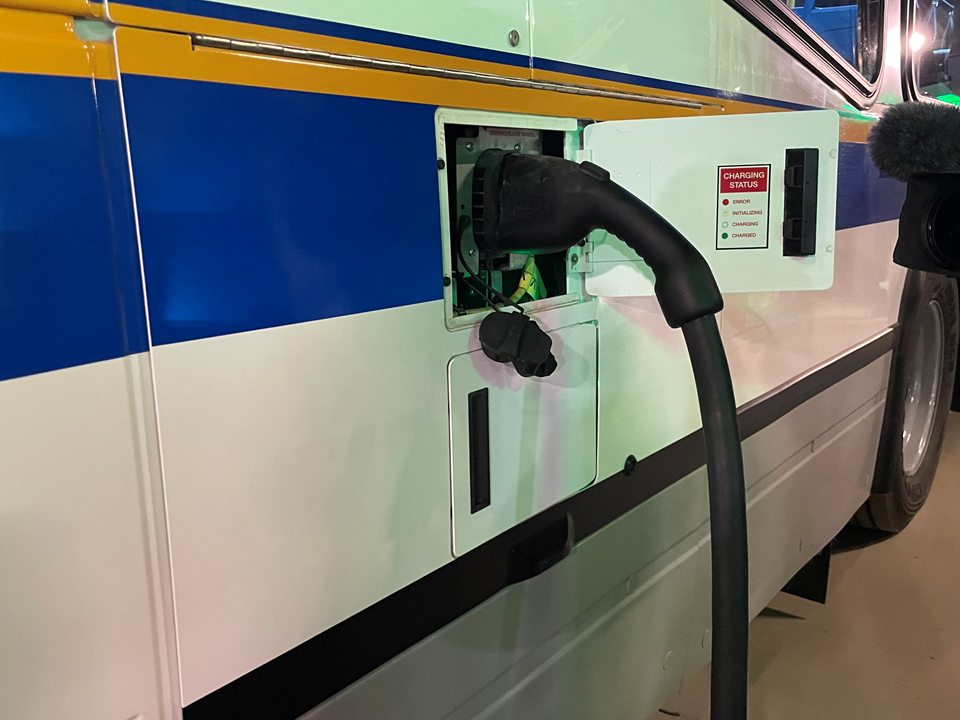MOOSE JAW — City council may have rejected city administration’s initial request for support for a zero-emission vehicle (ZEV) feasibility study, but that isn’t stopping the latter from trying again.
Administration hoped a grant from the Federation of Canadian Municipalities (FCM) would cover the outstanding amount but still required a backup funding source. However, city council declined since $18,120 would have come from the gravel roadways budget and members wanted to maintain those service levels.
During the May 26 regular meeting, administration asked council again to approve the feasibility study for $38,120 but suggested the $18,120 — administration still hopes to receive the FCM grant — come from the solar panel installation account.
City hall used this money to address potential panel shifting on the Temple Gardens Centre’s roof, but contractors have confirmed that no further shifting has occurred, so the money is no longer required, a council report said.
Meanwhile, the remaining $20,000 will come from the transportation branch’s consulting services and legal support accounts.
Council voted 4-3 to approve the motion, with councillors Carla Delaurier, Patrick Boyle and Chris Warren opposed and Mayor James Murdock and councillors Jamey Logan, Heather Eby and Dawn Luhning in favour.
Warren attempted to move that administration pursue the project only if FCM provided the $38,130, but council voted 6-1 against it.
Reasons for a study
A zero-emission vehicle feasibility study is required because industry-wide changes and new environmental mandates are being imposed on municipalities, the report said.
In response, city hall — through the Toronto-based non-profit Canadian Urban Transit Research and Innovation Consortium (CUTRIC) — is conducting a study to explore potential updates to the transit system.
Urgency for zero-emission buses
Vehicle manufacturers are currently — and quickly — phasing out diesel bus production, which is forcing the city to identify what’s needed to transition its fleet to ZEVs, the report continued.
By considering zero-emission buses (ZEB), Moose Jaw could access funding that supports this transition and reduces costs, the document noted. Currently, more funding opportunities exist for ZEBs than for diesel buses, while funding for the latter is disappearing.
“Completing this report puts away a blind spot for me and gets public works through the door for further grant funding,” said Bevan Harlton, director of operations.
“Operationally, the phase-out of diesel buses is happening now … and we will be moving our mechanics, our operators and our transit fleet into some different technology with or without this funding,” he continued. “And we will manage that either blindly or working with CUTRIC to understand that.”
Expertise and support
CUTRIC, the federal government’s chosen service for its zero-emission transit fund, is assisting Moose Jaw with planning a potential transition to a ZEB fleet, while it has successfully worked on a similar project in Saskatoon and in 30 other Canadian municipalities, the report said.
Harlton pointed out that a survey last year showed that more people want to ride the bus compared to those who do while the first-quarter report for 2025 showed that buses transported roughly 70,000 people throughout the city.
“Transit is an essential service,” he added.
Council’s thoughts
Murdock was OK with moving forward with this project since it would help the city acquire the necessary knowledge with ZEBs, even though he was skeptical of them.
“I think the verdict is still out on public transit buses and battered-powered (vehicles) with our winters,” he added.
Luhning said she disagreed with administration’s first request since it was “robbing Peter to pay Paul” to fund the project. However, she now approved of it since “some of these things are inevitable with the way the world is changing.” She was also interested in learning about new ways to support transit.
Warren disagreed with giving CUTRIC the project as a sole-source contract and preferred to tender it competitively so local companies could bid.
Furthermore, he disagreed with staff contributing in-kind work for $25,000, while he thought the city should wait to acquire more information either when the transportation master plan came in 2026 or from other cities, and he thought this project — which wasn’t in the 2025 budget submissions — strained priorities.
“I think it’s premature to invest in electric buses … (and) investing $200,000 in taxpayer dollars is (also) premature,” Warren added. “We can’t do everything. We have to balance our ambition with our capacity.”
The next regular council meeting is Monday, June 9.




